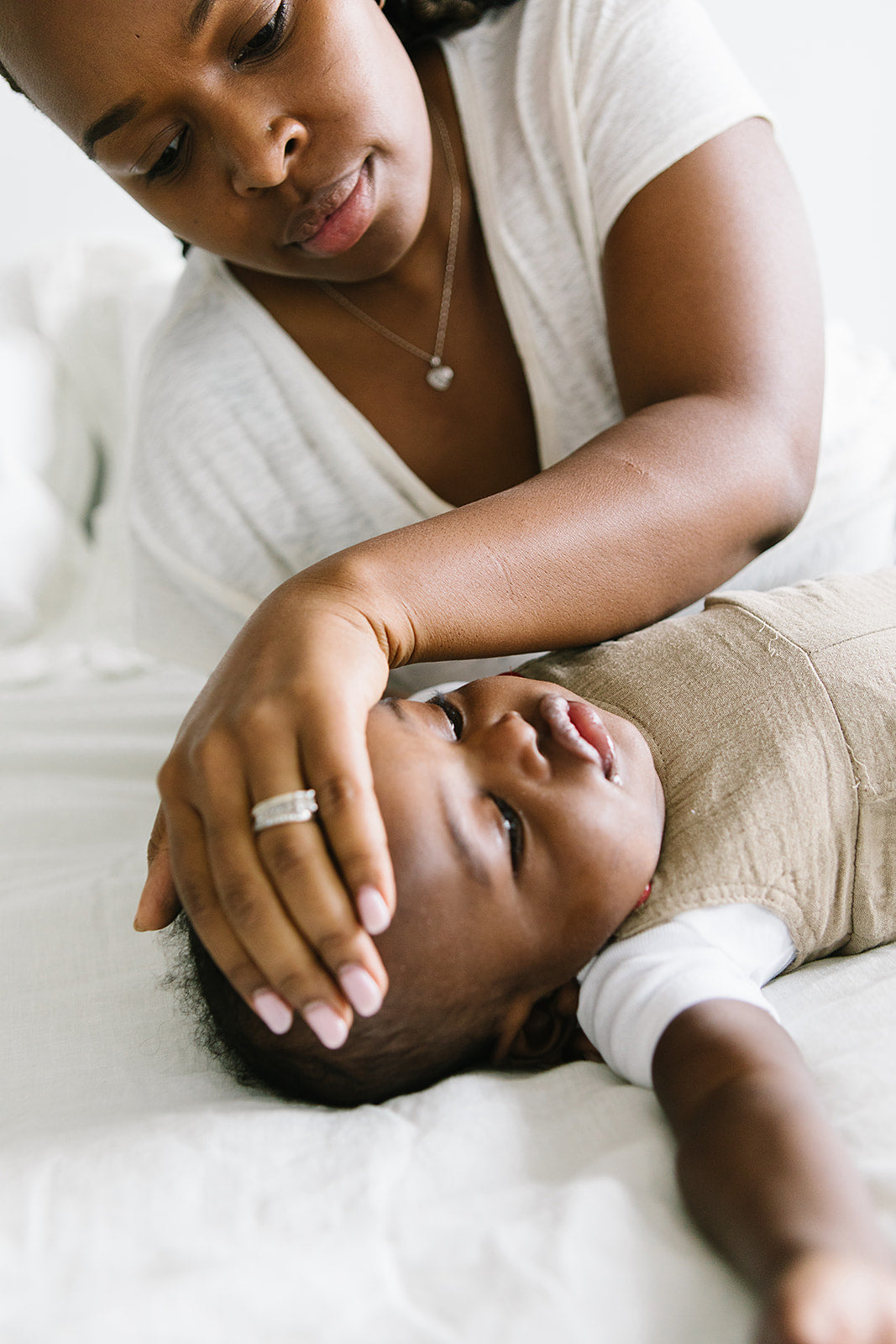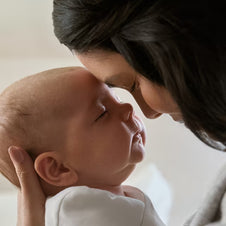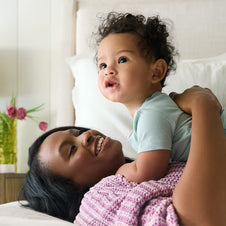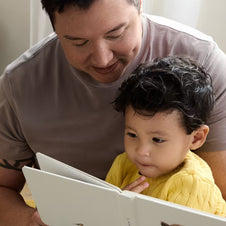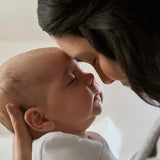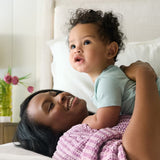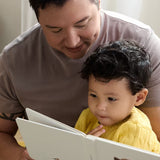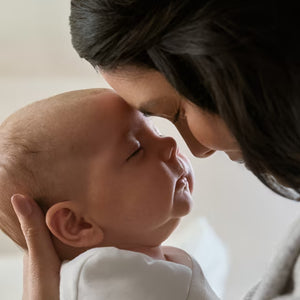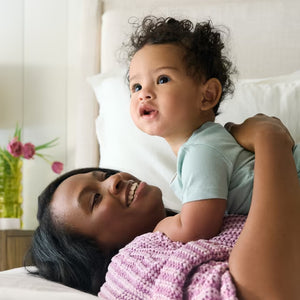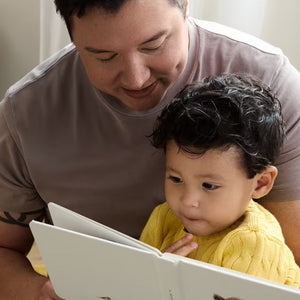We know sleep is good medicine, but when little ones are sick, sleep is often disrupted. So what do you do? Let’s talk about how to support your baby or toddler while they’re sick and set them up for the best sleep possible.
Taking Cara Babies Classes
How can I help my sick baby or toddler sleep more comfortably and get better?
The most important way to help your sick child get better is to provide comfort and a healthy environment. Here are some ways that you can do that:
-
Give your baby or toddler plenty of snuggles and sleep support.
-
Wash everyone’s hands frequently. (This is the #1 way to prevent the spread of illness!)
-
For congestion/stuffiness, use saline drops and a Nose Frida or NozeBot to suction out that icky-cold snot.
-
For coughing, run a cool-mist humidifier (use code CARA) in your child’s room or consider sitting in a steamy bathroom with your baby or toddler.
-
For vomiting, diarrhea, or a high fever, consult your pediatrician about the best way to keep your baby hydrated. Your doctor may suggest offering small, more frequent feedings, adding in night feedings, or even offering Pedialyte.
-
For pain relief or fever reduction, talk to your doctor about offering Tylenol or Motrin.
Expert Tip: If you need more guidance around caring for a sick baby or toddler, my friend and fellow ER nurse, Shannon Tripp, created an online class to help you! RSV: What Every Parent Needs to Know About Respiratory Illnessess will show you how to help your child when they’re sick, give you the secrets of staying out of the hospital, and ultimately knowing when you may need extra help.
What if my little one is struggling to fall asleep? How do I get an overtired, sick baby to sleep?
An overtired and sick baby can feel overwhelming. Let me give you some practical ways to help your baby get the sleep they need:
1. Maintain your normal bedtime and naptime routines.
When dealing with a sick baby, these familiar routines still help cue the brain that sleep is coming. This sets them up for the best sleep possible.
2. Provide sleep support.
Sickness and discomfort can make it more difficult for babies to fall asleep and stay asleep, even those who are normally great little sleepers. If your baby is struggling with sleep while sick, you may need to give them a little extra help. This could mean rubbing their back, picking them up, or even feeding/rocking them to sleep.
Expert Tip: Yes, these interventions may be needed even for those who are normally independent sleepers. Do not let this added sleep support stress you! Your great little sleeper will return once they are feeling better!
3. Consider comfort measures
If sleep support isn’t enough to help your baby or toddler fall asleep, consider ways to help increase comfort. This could mean suctioning their nose if congestion is making it difficult to breathe, adding a humidifier to the room to help loosen up congestion, or giving Tylenol or Motrin if the fever and body aches are preventing sleep. (Be sure to check with your pediatrician about dosages.)
4. Take the pressure off.
When little ones are sick, we can feel so much pressure to get them to sleep. We know their little bodies need rest to get better. But, did you know that your baby or toddler can sense that anxiety? It’s true, and it actually makes falling asleep more challenging. So rather than stressing about sleep, try to focus on helping yourself and your baby relax. To do this, go into a quiet room, turn off the lights, turn on a sound machine, and take some deep breaths. As you calm yourself, your baby will mirror your emotional energy allowing sleep to eventually come.
5. Remember who you are.
When your baby or toddler isn’t feeling well, it’s normal to feel powerless and out of control. Let me remind you, YOU are exactly the right person for your little one. There’s no better mama, no better daddy, on the planet for that baby than you.
Mama, Daddy: YOU are the person your child needs to feel at ease–to relax– when they’re sick or scared. So, even if you feel anxious inside, say these words aloud, “I’m here for you! I’ve got you! I know you’re scared, but I’m going to be here with you through it all!”
Keep saying these words until you hear the conviction in your own voice, until you feel yourself confident in what you’re saying. Your assurance provides safety and security to your little one. YOU are just the person your baby or toddler needs at that moment.
6. Visit the doctor if needed.
If it has been longer than 24 hours and your child just won’t sleep, it’s time to have your baby seen or at least put a call in to your pediatrician. Trust your instincts on this. If something inside of you says to seek medical attention (ie- difficulty breathing), even if it’s only been a short while: GO! Trust your gut.
What is the best sleeping position for a congested baby?
Parents often ask if they should allow their congested babies to sleep in an elevated position to help them breathe better. This is NOT recommended. I know that this may be helpful for adults, but it's simply not safe for babies. Swings, car seats (outside of the car), strollers, and sleep positioners are never intended for unsupervised sleep. Elevating the head of the crib is also NOT recommended. All of these practices can put babies in a compromised position making it more difficult to breathe.
Bottom Line: Research tells us that a firm, flat surface (in a crib, bassinet, or play yard) is the only safe option for unsupervised sleep, even during an illness.
Should I bring my sick baby or toddler into my room so I can keep them close?
I don't recommend it. But hear me: I understand why you want to be so close to your sick child. You want to listen to every breath and be as responsive as possible to every need. I understand that, but keep in mind that we all sleep better in our own beds. This is true for little ones too. So, instead of disrupting your child's comfortable, familiar, and safe sleeping space by bringing them into your room, go into their room. Take a mattress and sleep on the floor next to their crib or bed. This will help them sleep better during the illness, yet fulfill your heart's desire to watch their every move.
Do children sleep more when they are sick?
Your child’s sleep needs may increase when they’re sick. Like adults, it can be normal for your baby or toddler to be more tired when experiencing an illness since their body is working hard to get well. (If you’re worried that your baby is too sleepy, please reach out to your pediatrician.)
While many sick babies and toddlers sleep more overall, that sleep may be disrupted. You may find that they wake up more frequently during naps and nighttime.
Insider info: Research shows that when we get adequate sleep, our bodies have a boosted immune system to fight off infections. That means helping your little one sleep is a VITAL part of preventing AND fighting illnesses!
How much should I let my baby or toddler sleep when they’re sick?
The best strategy is to watch your sick baby or toddler’s cues. They may need a more restful day with shorter wake windows and longer naps OR they may need just as much activity as normal – and either of these is okay.
If your sick baby or toddler sleeps in later than usual, it’s okay to allow up to an additional hour of sleep. After that extra hour, I recommend waking them so they can stay properly hydrated and get enough awake time to have restful night sleep.
While your baby or toddler is sick, you can also allow naps to be a bit longer than normal. (Remember, sleep is GREAT medicine.) At the same time, keep in mind that awake time, hydration, and calories are important too. Trust your gut, but consider waking your little one if it has been longer than 2.5-3 hours for any given nap. Try to get some good awake time before your baby or toddler sleeps again. Keep in mind, this may not look like normal wake windows, and that's okay. Watch your child, and let their cues guide you.
Can I let my child sleep with a fever?
If your baby is under 3 months and has a fever over 100.4°, please call your pediatrician right away.
For babies or toddlers over 3 months, it is safe to allow sleep, even with a fever. I do recommend checking on your baby or toddler every hour or so when napping and every couple of hours throughout the night to see if they're sleeping comfortably and breathing normally. If you have concerns about your baby sleeping with a fever or irregular/fast breathing, be sure to speak with your pediatrician.
How should I dress my baby with a fever at night?
You don’t need to make changes to how you dress your baby when they have a fever. Even if your baby has chills, we want to avoid adding extra layers. My blog – How to Dress Baby for Sleep – can help guide you when dressing your sick baby.
Can I sleep train my baby or toddler while they’re sick?
No. When your baby or toddler is sick, they will need extra support and comfort to meet their physical and emotional needs. That means sickness is not the time for sleep training.
If your little one becomes ill when you’re in the middle of sleep training, you’ll need to take a break. If you're using ABCs of Sleep or Toddler Sleep Training, be sure to check the videos in your class about sickness for more details on this.
Before beginning or resuming sleep training after an illness, make sure your baby or toddler has fully recovered. The best way to do this is to check in with your doctor.
How do you get your baby or toddler back on track after an illness?
Having a good sleep foundation before an illness can be helpful in getting your baby or toddler back on track with their sleep after an illness. It can also be helpful in preventing, recovering from, and even identifying some illnesses.
If you’re struggling with sleep after your child has recovered from an illness (or sleep has always been a struggle), I have classes that can help whether you have a newborn (0-3 months), baby (5-24 months), or toddler (2-4 years). Each of my classes has a specific section on how to get back on track after an illness. It may take time; that’s okay. Give yourself and your sweet baby or toddler lots of patience and grace.
I know sick babies and toddlers are hard, but you can do this!

